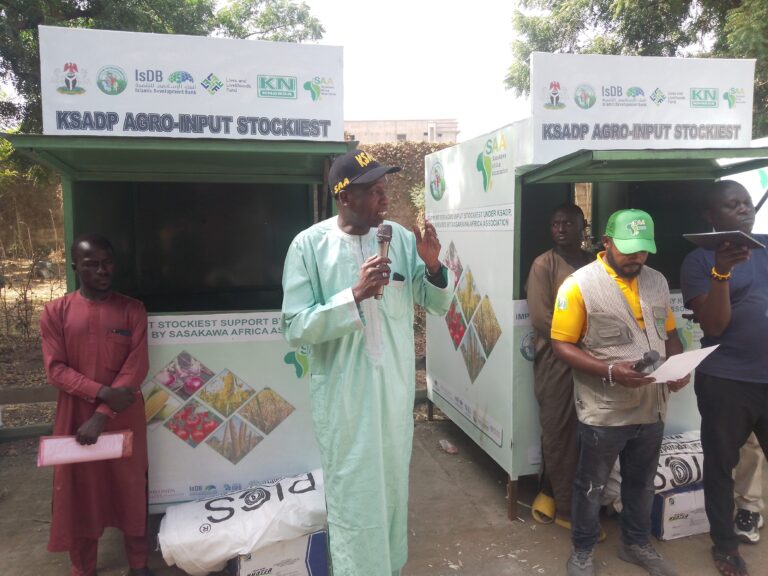The Kano State Agro-pastoral Development Project (KSADP) in collaboration with Sasakawa Africa Association, has empowered 100 women, youths and people with special needs trained as agro-input dealers in the state.
Each was provided with branded metal kiosks and packs as part of measures to check the distribution of fake and adulterated farm inputs to farmers.
The project coordinator, Ibrahim Muhammad, said on Tuesday in Kano that the gesture was designed to empower women, youths and people with special needs.
Muhammad said that Sasakawa and KSADP had partnered to implement crop enhancement component of the project funded by Islamic Development Bank and Lives and livelihoods Funds.
He further said that the project was committed to poverty reduction and strengthening food and nutrition security in the state.
The project coordinator said there was need to educate and empower those involved in agro business to tackle the issue of unsafe usage of agro chemicals that usually result in health issues to Nigerians.
Mr Abdulrasheed Kofar-Mata, Project Coordinator of KSADP at Sasakawa Africa Association, said that the initiative was to ensure that farmers do not face the challenges of procuring fake, unwholesome agricultural inputs that negatively affect harvests.
Kofar-Mata said KSADP was helping farmers and small scale agro-input dealers to build a more prosperous future.
He urged the beneficiaries to make best use of the inputs given to them and share the knowledge acquired during the training with others.
Kofar-Mata said that the beneficiaries were provided with branded kiosks, pesticides, and airtight storage bags.
Also speaking, Managing Director, Kano State Agriculture and Rural Development Authority, Dr Farouq Kurawa, advised the beneficiaries to judiciously manage and maintain the facilities provided to them.
Kurawa said training and retraining of agro-dealers should be intensified to stop the spread of adulterated agricultural inputs to farmers.
Aisha Muhammad, who spoke on behalf of the beneficiaries, said that the training had helped them in changing the ways and manner they deal with agrochemicals, and in handling the business. (NAN)


